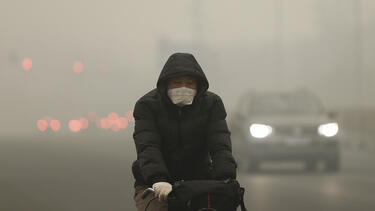Ahmed Mushfiq Mobarak
Economic Data Helps Explain a Pattern of Violence Against Myanmar’s Rohingya Minority
New research from Yale SOM’s Mushfiq Mobarak shows that the violence and looting in rice-growing areas is tied to rice prices, suggesting an economic motivation for the attacks, and finds that the government response to conflicts involving the Rohingya is far harsher than in conflicts with other ethnic groups.

When Skilled Workers Go Abroad, Their Home Countries Experience ‘Brain Gain’
When skilled workers from poorer countries migrate to wealthy ones, there are benefits for the origin countries as well as workers and the host countries, according to new research co-authored by Yale SOM’s Mushfiq Mobarak. But anti-immigrant sentiment and policy could disrupt this mutually beneficial dynamic.

What’s Next for Bangladesh after the Monsoon Revolution?
We talked to Yale SOM economist Mushfiq Mobarak, a member of a task force advising the interim government on economic strategy, about the reforms necessary to ensure a prosperous and democratic future for the country.
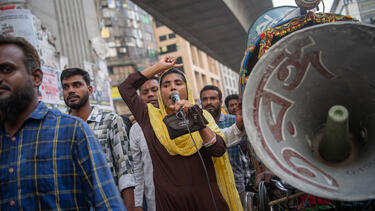
Going the Last Mile (with Evidence)
A study by Yale’s Mushfiq Mobarak and his colleagues found that nurses on motorbikes with vaccine-stocked coolers could help increase vaccination rates in rural Sierra Leone, showing that it is possible to get health interventions to the most remote and under-resourced areas cost-effectively, in ways that help ensure that the interventions are taken up and used.
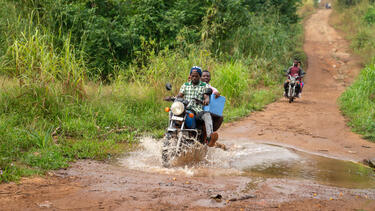
Video: Dating, Marriage, Parenting, and the Gender Wage Gap
Women earn 79 cents for every dollar that men make. But look beyond that widely cited statistic, and you’ll find a complex story of causes, effects, and correlations. Prof. Mushfiq Mobarak surveys the literature on the subject and argues that, to close the gap, we need to address society’s differing expectations around who bears the burden of family and parenting responsibilities.
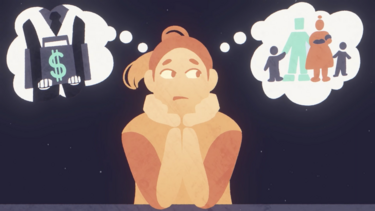
Uncovering the Mental Health Impacts of COVID-19 in Low- and Middle-Income Countries
A new study co-authored by Yale SOM’s Mushfiq Mobarak investigated how mental health fared after the pandemic arrived in eight low- and middle-income countries, and found signs of a sharp, and lasting, deterioration.
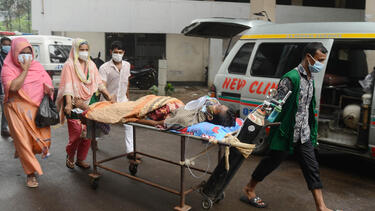
In a First, Randomized Study Shows That Masks Reduce COVID-19 Infections
A large study co-authored by Yale SOM’s Jason Abaluck and Mushfiq Mobarak found that a mask-promotion program in Bangladesh significantly lowered symptomatic infections, especially among older people and when surgical masks are used.
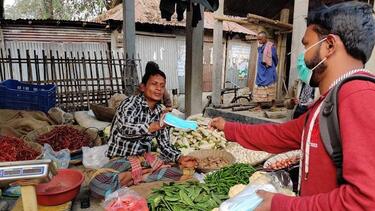
Send Vaccines Where People Want Them: Developing Nations
COVID-19 vaccine acceptance is significantly higher in low- and middle-income countries than wealthy ones. Prioritizing those countries for vaccine distribution could help save more lives and keep variants at bay.
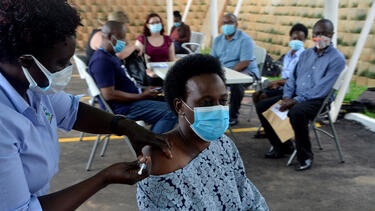
Study in Bangladesh Identifies Keys to Encouraging Mask-Wearing
A team of researchers, including Yale SOM’s Jason Abaluck and Mushfiq Mobarak, tested multiple methods for encouraging use of masks in Bangladesh and identified a group of simple interventions that tripled usage.
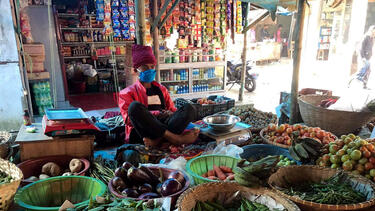
Skilled Workers Flee from Polluted Cities, Hampering Economic Growth
In China, highly educated people are more likely to move away from areas with poor air quality. Reducing pollution could substantially increase GDP there and in other countries, according to a new study co-authored by Yale SOM’s Mushfiq Mobarak.
